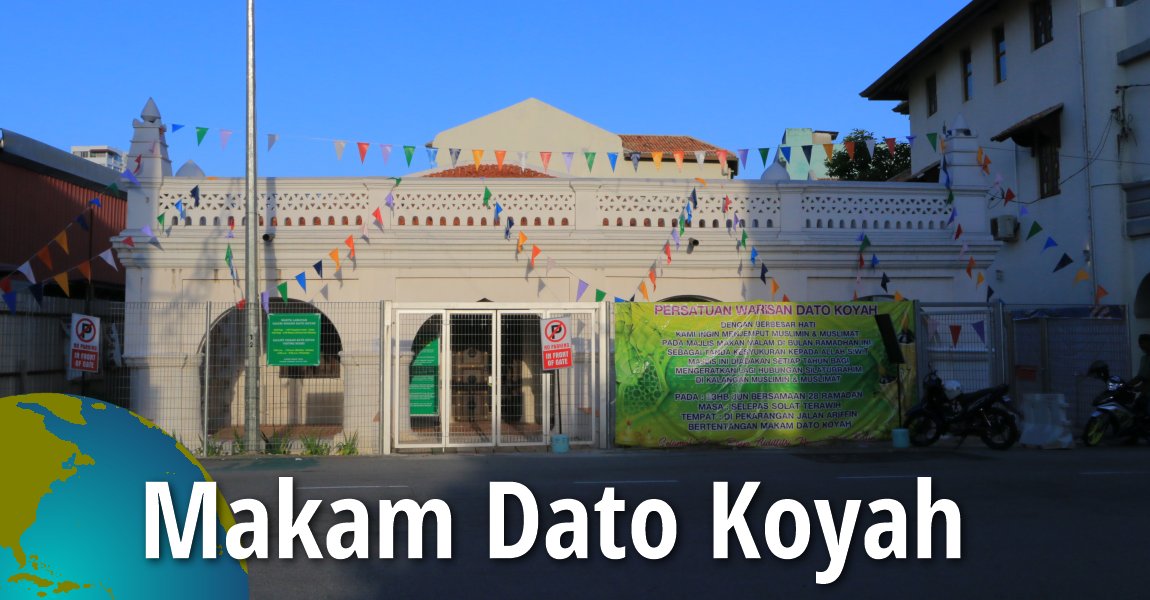 Makam Dato Koyah, Penang (9 June 2018)
Makam Dato Koyah, Penang (9 June 2018)
Dato Koyah Shrine (GPS: 5.42049, 100.33058), also called Makam Dato Koyah or Keramat Dato Koyah, is a shrine to a Muslim saint along Transfer Road in George Town, Penang. Dato Koyah, sometimes also written as Datuk Koya, is the popular name for Syed Mustapha Idris. He arrived in Penang from the Malabar coast in southern India (in present-day Karnataka and Kerala), where he was a mendicant, wandering from place to place, teaching, healing the sick, until one day, an incident happened that forced him to flee. Accused of a murder he did not commit, he had to leave the Malabar coast. Dato Koyah arrived in Penang some time in the early 19th century.
In Penang, Dato Koyah settled down under a tree at the site where his shrine stands today. At that time, Jalan Transfer was not yet built. Instead, a canal extends from North Beach - the coast where Jalan Sultan Ahmad Shah is today - right down to where it meets the Prangin Canal, where Masjid Titi Papan is today.
Dato Koyah became a laborer to earn a lifelihood, but to the Malayalee and Tamil Muslim community, he was respected as a spiritual leader and teacher. There are legends about him that he could do miracles, including feeding the masses from the porridge of just a small pot, of producing candies for children seemingly out of thin air, and on one occasion, of getting out of a locked jail. It happened when Dato Koyah was arrested along with the fellow labourers for demonstrating against the beatings inflicted by their British superiors. Somehow, he managed to walk out of the jail very next day. Not only that, while the workers were incarcerated, the road work that they were to do had been miraculously completed.
Eventually Dato Koyah won the respect of the British authorities. When he passed away, he was buried and Keramat Dato Koyah was erected by his followers. It stands on the spot where he lived under the tree. The British honored him by naming Jalan Dato Koyah after him. That road leads from Lebuh Clarke, behind Keramat Dato Koyah right down to Penang Road. A Malabari settlement once existed in this area, from the shrine, along Jalan Dato Koyah, and continued across Penang Road into Kampung Malabar.
Followers of Dato Koyah would observe his feast day, which falls on the 5th day of the second Muslim month, Safar, at which time alms were distributed to the poor. On normal days, devotees - mostly Tamil Muslims - would visit the shrine, especially on Thursday nights. They place flowers on his grave, burn incense, and ask for favors.
The architecture of the Dato Koyah Shrine reflects south Indian architecture. It is similar to other Indian Muslim shrines in the region, particularly the Nagore Shrine along Chulia Street and the Nagore Shrine in Singapore.
When the Dato Koyah Shrine was built, there was a wide drain or channel, known as Bounds Ditch running parallel to presently Transfer Road. According to the Mcarthy map of 18071
Galeri Makam Dato Koyah
Makam Dato Koyah underwent a restoration in a Think City project, in collaboration with the Penang State Government, Persaturan Warisan Dato Koyah and George Town World Heritage Incorporated. After the restoration was done, a viewing gallery is open to the public daily from 9:00am to 1:00pm everyday except Thursday, when it is open until 9:00pm.Getting there
Keramat Dato Koyah is located at Transfer Road. If you are coming from the Weld Quay Ferry & Bus Terminal, it is best to alight the bus at Penang Road and then walk to the shrine. Rapid Penang Bus 10, 11, 103, 101, 104, 201, 202, 203 and 204 pass through Penang Road. These buses will pass by Jalan Transfer on their way back to Weld Quay Ferry & Bus Terminal.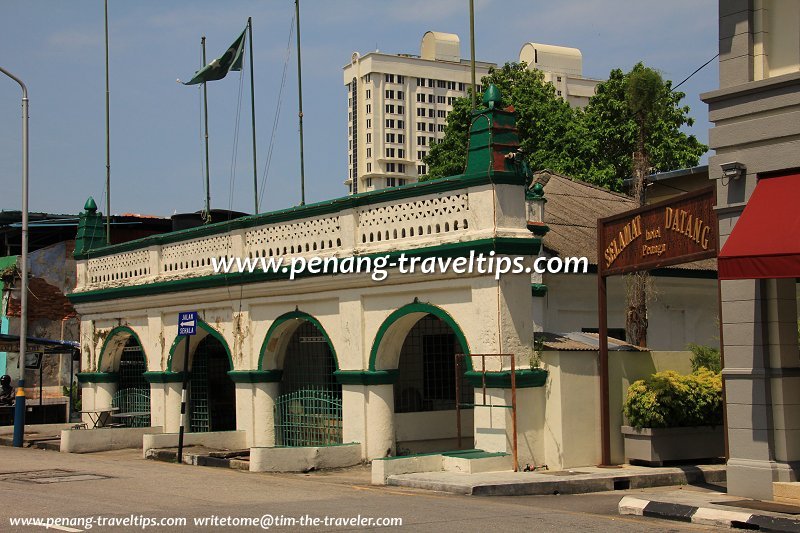 Dato Koyah Shrine in 2012 (30 August 2012)
Dato Koyah Shrine in 2012 (30 August 2012)
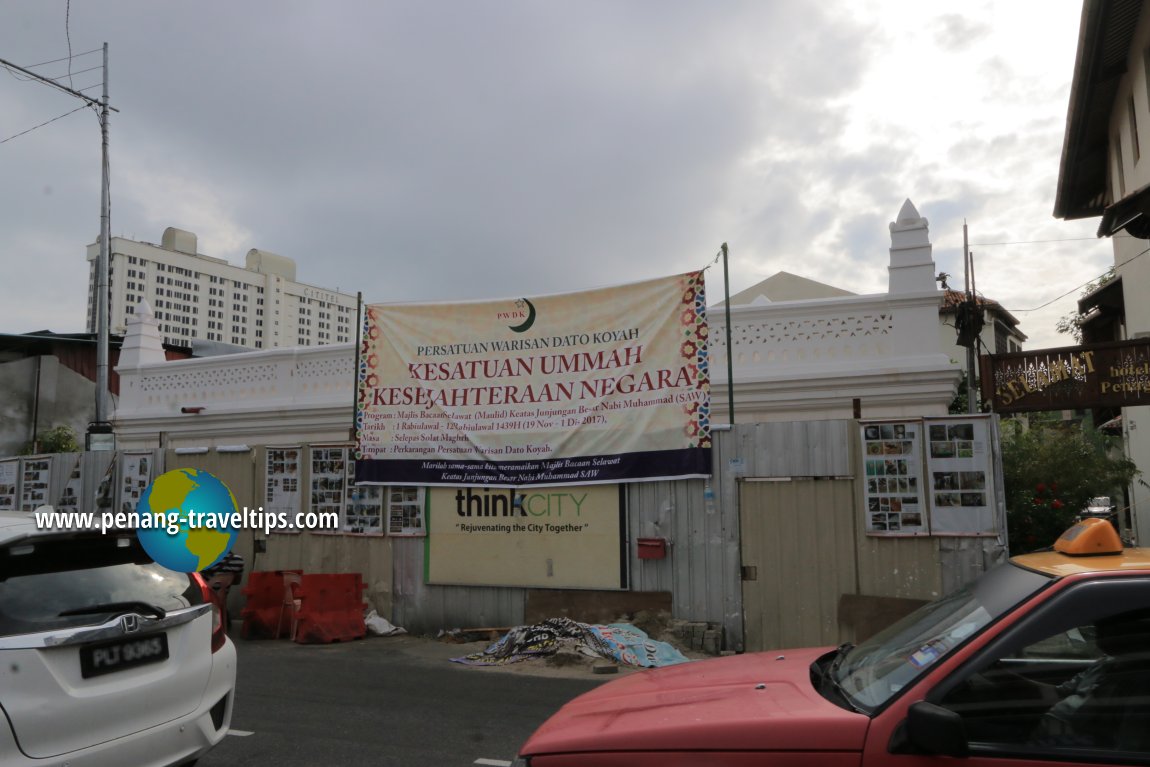 Dato Koyah Shrine under restoration (25 November 2017)
Dato Koyah Shrine under restoration (25 November 2017)
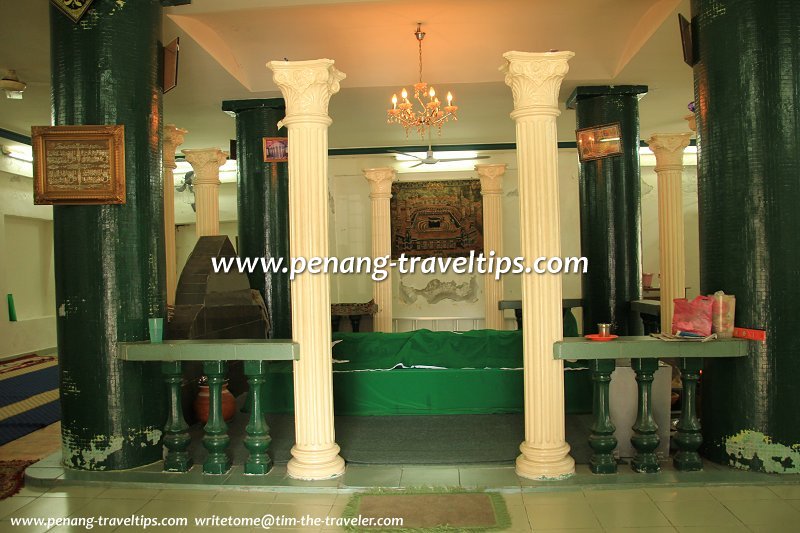 The grave of Dato Koyah (30 August 2012)
The grave of Dato Koyah (30 August 2012)
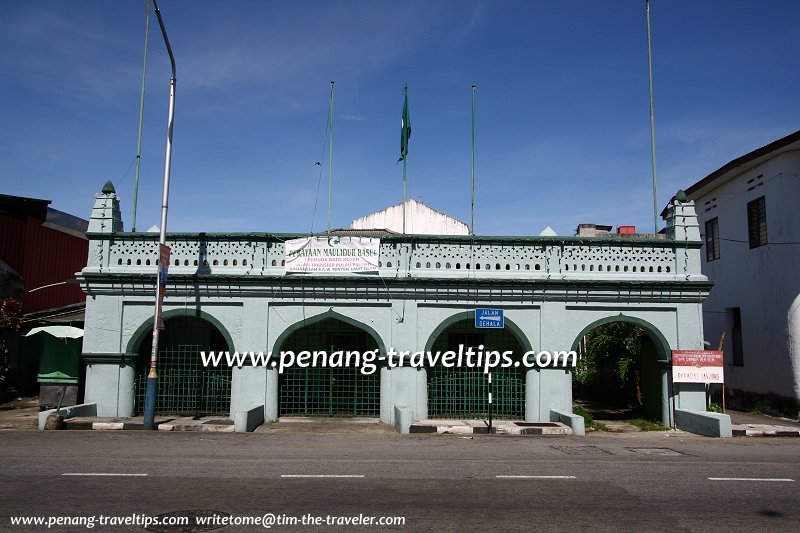 Keramat Dato Koyah in 2006 (28 May 2006)
Keramat Dato Koyah in 2006 (28 May 2006)
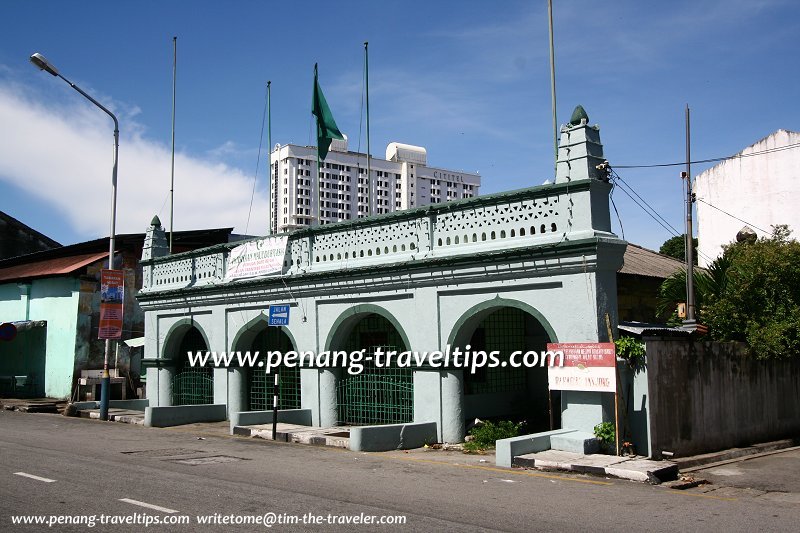 Keramat Dato Koyah (28 May 2006)
Keramat Dato Koyah (28 May 2006)
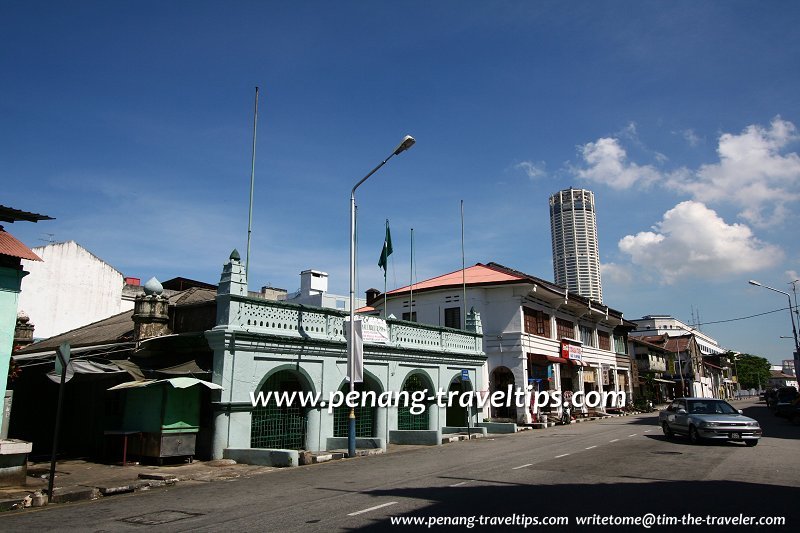 View of Keramat Dato Koyah along Jalan Transfer (28 May 2006)
View of Keramat Dato Koyah along Jalan Transfer (28 May 2006)
Makam Dato Koyah is  on the Map of Jalan Transfer, Penang
on the Map of Jalan Transfer, Penang
References
List of Mausoleums in Penang and Mausoleums in Malaysia

Copyright © 2003-2025 Timothy Tye. All Rights Reserved.

 Go Back
Go Back